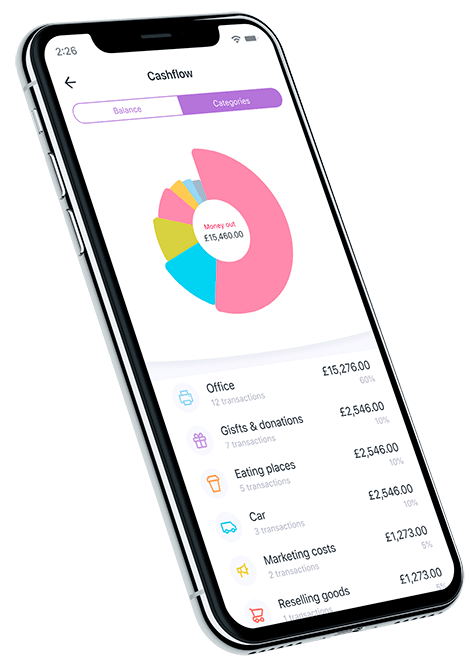Stay Alert: Social Media Scams to Watch Out For

Social media plays a significant role in our daily lives, and, as with any aspect of life, it is also a target for scams. It's important to stay aware of the latest scams to keep yourself and your loved ones safe. We pick out some of the online scams you need to keep a wary eye on. In this article, you will learn how to identify them and get tips to safeguard your online presence.
The Rise of Social Media Scams
A Post-Lockdown Reality 2020 marked the rise of social media scams. During the lockdown, many people experienced a dramatic shift to their personal and professional lives. That naturally led them to spend more time on social media - a great way to keep up with friends, family and what is happening in the world. But it is also where fraudsters are keen to prey on anyone they can find.
Back in 2020, The Local Government Association has reported a 40% rise in complaints in some areas [1]. A UK Finance report revealed that over £1.2 billion was stolen in 2022 by criminals through fraud in 2022, equivalent to over £2,300 every minute [2].
The amount of fraud committed in the UK more than doubled to £2.3bn in 2023, marking the second-biggest year for scams in the last two decades, according to a FraudTrack report from BDO UK [3], with over 3 million fraud incidents reported [5]. An Ofcom research paper revealed that nine in ten adults in the UK have come across content they suspected to be a scam or fraud, and 23% of the respondents first encountered it on social media [4].
Common Types of Social Media Scams
• One prevalent type of social media scam is phishing. Fraudsters impersonate legitimate organisations to obtain personal information. They often send messages or emails that appear to be from established companies, asking users to verify their credentials or financial information. Common red flags include generic greetings, poor grammar, urgent requests for sensitive information, and links to unofficial websites.
• Another common scam involves fake contests. These scams promise free prizes in exchange for likes, shares, or personal information. Users may be lured in by enticing offers, only to find that the contest is fake. Unrealistic prizes, new or unverified accounts hosting the contest, and requests for personal information to claim a prize are typical warning signs.
• Impersonation scams are also rampant on social media. According to an Ofcom research paper - it's the most common type of fraud, experienced by 51% of the respondents [4]. In these scams, fraudsters create fake profiles that imitate public figures, friends, or family members to solicit money or sensitive information. Profiles with slight spelling variations from legitimate accounts, requests for financial assistance or private information, and overly aggressive messaging are indicators of such scams.
• Investment scams are another significant threat. Scammers often use social media to promote "too-good-to-be-true" investment opportunities, especially in trending markets such as cryptocurrencies. They encourage users to invest quickly, often promising high returns with little to no risk.
Tips for Staying Safe on Social Media
• Always approach messages from unknown contacts with caution, as genuine organisations will not ask for sensitive information via social media.
• Before engaging with an account, verify its legitimacy by looking for signs of authenticity, such as verification badges and a history of posts or activity.
• If an offer seems too good to be true, it probably is a scam. Do a quick online search to see if others have reported similar scams.
• Hover over links to see the destination URL before clicking, and if it looks suspicious, avoid it. Always type web addresses directly into the browser for safety.
• Review your privacy settings across all social media platforms and limit who can see your information and posts to only trusted connections.
• Stay informed about the latest scams and share this knowledge with friends and family, as the more people who know about these scams, the harder it will be for scammers to thrive.
• Most social media platforms have mechanisms to report suspicious accounts, so use these tools to notify the platform about potential scams.
• Adopt unique and complex passwords for your social media accounts, and enable two-factor authentication when possible.
By being cautious and staying informed, you can better safeguard yourself and your loved ones from social media scams and help make the online space safer for everyone.
[1] - The Guardian article' Huge rise in fake goods and scams amid coronavirus lockdown, say UK councils' by Miles Brignall- 2020-05-09 - https://www.theguardian.com/uk-news/2020/may/09/huge-rise-in-fake-goods-and-scams-amid-coronavirus-lockdown-say-uk-councils.
[2] - UK Finance report 'Over £1.2 billion stolen through fraud in 2022, with nearly 80 per cent of APP fraud cases starting online' - https://www.ukfinance.org.uk/news-and-insight/press-release/over-ps12-billion-stolen-through-fraud-in-2022-nearly-80-cent-app.
[3] - BDO report 'Reported fraud doubles in 2023, BDO report finds' by Kaley Crossthwaite - 2024-02-19 - https://www.bdo.co.uk/en-gb/news/2024/reported-fraud-doubles-in-2023-bdo-report-finds?_gl=1*235wpj*_ga*MTY5MzA2MDUxMC4xNzI2NTA2MTIw*_up*MQ.
[4] - Ofcom report 'Scale and impact of online fraud revealed' - 2023-03-16 - https://www.ofcom.org.uk/online-safety/online-fraud/scale-and-impact-of-online-fraud-revealed/.
[5] - GOV.UK article ‘World first agreement to tackle online fraud’ - 2023-11-03 - https://www.gov.uk/government/news/world-first-agreement-to-tackle-online-fraud.

Download now!
And you can open a business account with all the support you need in minutes.



